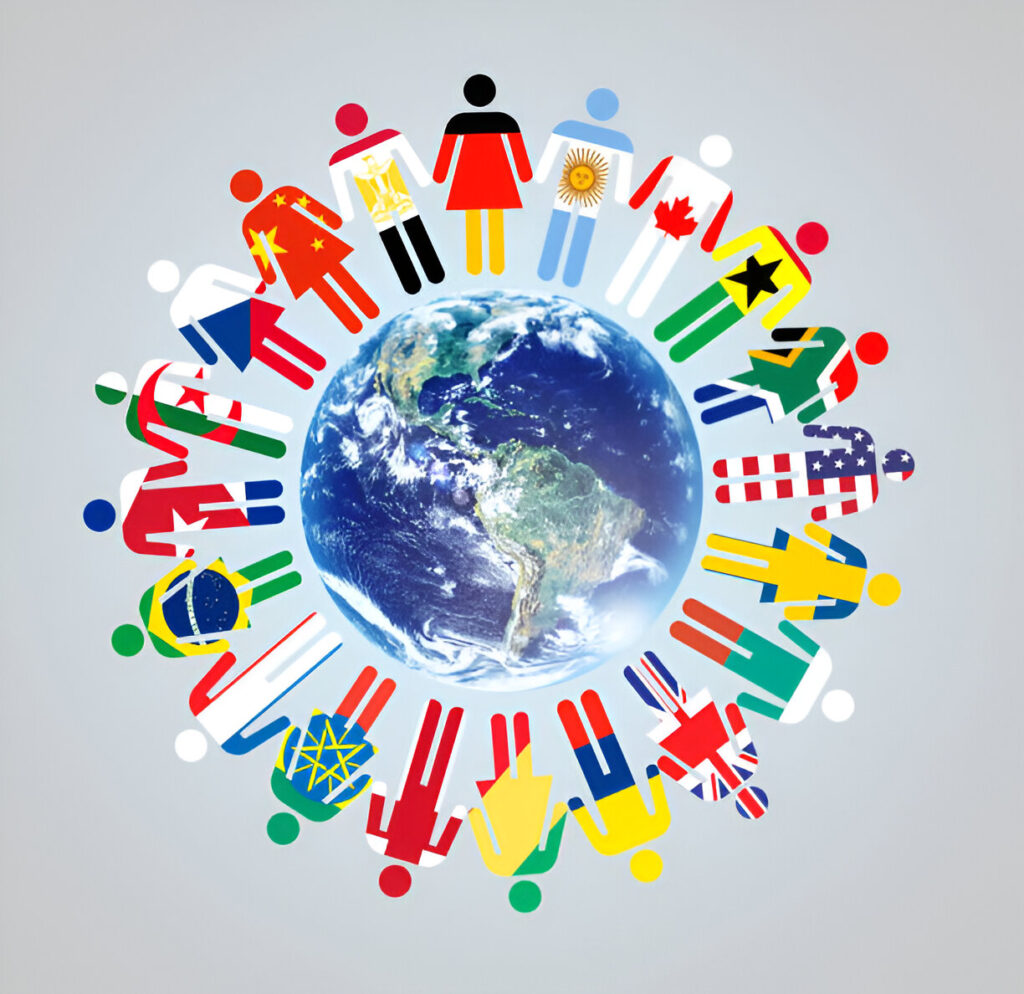Living abroad can be an exciting adventure, but it also comes with its own set of challenges, particularly when it comes to accessing healthcare. One of the most significant hurdles expatriates often face is navigating language barriers in healthcare settings. Effective communication is crucial for receiving appropriate medical care, understanding treatment options, and managing health conditions. In this blog, we’ll explore strategies for overcoming language challenges in healthcare abroad, offering practical advice to ensure you receive the best possible care despite language differences.

1. Understanding the Importance of Effective Communication in Healthcare
1.1. Why Communication Matters
Effective communication in healthcare is essential for:
- Accurate Diagnosis: Clear communication ensures that symptoms are accurately described and understood.
- Treatment Understanding: Understanding treatment plans, medication instructions, and follow-up care is crucial for recovery.
- Informed Decision-Making: Patients need to be well-informed about their health conditions and treatment options to make educated decisions.
1.2. Risks of Poor Communication
Poor communication can lead to:
- Misdiagnosis: Inaccurate or incomplete information can result in incorrect diagnoses.
- Treatment Errors: Misunderstanding instructions or medication information can lead to treatment errors.
- Increased Anxiety: Language barriers can increase stress and anxiety about health conditions and treatments.
2. Strategies for Overcoming Language Barriers
2.1. Learn Basic Medical Vocabulary
Why It Helps
Learning key medical terms in the local language can help you:
- Communicate Symptoms: Describe symptoms more effectively.
- Understand Instructions: Follow medical instructions with greater accuracy.
How to Learn
- Online Resources: Use language-learning apps and websites to study medical vocabulary.
- Phrasebooks: Carry a medical phrasebook or app with essential terms and phrases.
- Local Classes: Enroll in language classes focused on medical terminology.
2.2. Use Professional Interpreters
When to Use
Professional interpreters are beneficial for:
- Complex Medical Situations: When discussing detailed medical histories or complex treatment plans.
- Legal Matters: If you need to understand consent forms or legal documentation.
How to Access
- Hospital Services: Many hospitals offer interpreter services. Ask if these are available when scheduling appointments.
- Language Services Agencies: Contact agencies that provide professional interpretation services.
2.3. Leverage Technology
Translation Apps
- Medical Translation Apps: Use apps designed specifically for medical translation. These apps can translate medical terms and phrases in real-time.
- General Translation Apps: Utilize apps like Google Translate for basic communication, but be cautious with medical terms as translations may not always be accurate.
Telemedicine Services
- Telemedicine Platforms: Some telemedicine platforms offer multi-language support and can connect you with healthcare providers who speak your language.
2.4. Seek Out Multilingual Healthcare Providers
Finding Providers
- Expats’ Recommendations: Seek recommendations from other expatriates who have navigated similar challenges.
- Online Reviews: Check reviews and ratings of healthcare providers for information on language skills.
Advantages
- Clear Communication: Direct communication with a provider who speaks your language can improve understanding and reduce errors.
- Comfort: You’ll feel more comfortable discussing sensitive health issues.
2.5. Prepare for Medical Appointments
Before the Appointment
- Prepare a Medical Summary: Write a summary of your medical history, symptoms, and current medications in both your language and the local language.
- List Key Questions: Prepare a list of questions or concerns you want to address during the appointment.
During the Appointment
- Bring a Translator: If possible, bring a bilingual friend or colleague who can assist with translation.
- Confirm Understanding: Repeat back what you have understood to ensure clarity.
2.6. Use Written Communication
Written Instructions
- Request Written Materials: Ask for written instructions or documentation in your language when possible.
- Translate Documents: Use translation services to translate important medical documents or instructions.
Documentation
- Keep Records: Maintain a record of your medical history, treatments, and medications in both languages to ensure continuity of care.
3. Navigating Language Barriers in Different Healthcare Settings
3.1. Hospitals and Clinics
Hospital Services
- Emergency Rooms: Emergency rooms may have access to interpreters, but it’s a good idea to inquire about their availability upon arrival.
- Specialist Clinics: Specialists may have staff who speak multiple languages, or they may provide interpretation services.
Tips
- Ask Ahead: When making appointments, inquire about language services and ensure they are available during your visit.
- Emergency Contacts: Keep a list of emergency contacts who can assist with language issues.
3.2. Primary Care Providers
Finding a Provider
- Expatriate Communities: Expat communities often share information about healthcare providers who speak multiple languages.
- Local Listings: Search for healthcare providers with multilingual staff through local directories or online platforms.
Tips
- Build Relationships: Establishing a relationship with a primary care provider who understands your language can make routine visits more comfortable and effective.
3.3. Pharmacies
Medication Information
- Label Reading: Pharmacies may provide labels in different languages, but it’s important to verify instructions.
- Consultation: Ask pharmacists to explain medication usage, side effects, and dosage instructions in detail.
Tips
- Request Clarification: Don’t hesitate to ask for clarification on any medication-related questions or concerns.
- Use Translation Apps: For quick translation of medication labels or instructions, use translation apps to assist with understanding.

4. Real-Life Experiences: Testimonials from Expats
4.1. Maria’s Experience in Italy
Maria, an expat from Spain, faced challenges navigating the Italian healthcare system after a sudden illness. With limited Italian language skills, Maria found it difficult to communicate her symptoms and understand the treatment plan.
How She Overcame the Challenges
- Interpreter Services: Maria utilized interpreter services provided by the hospital, which helped her communicate effectively with her healthcare providers.
- Translation Apps: She used translation apps to help with everyday interactions and medication instructions.
Testimonial
“Without the interpreter services, I would have struggled to understand my diagnosis and treatment options. The translation apps also made a big difference in managing daily medication. These tools were essential for my recovery.” – Maria, Italy
4.2. James’s Journey in Japan
James, an expat from the UK, needed to visit a specialist in Japan. Despite being proficient in Japanese, he found medical terminology challenging.
How He Managed
- Multilingual Specialist: James sought out a specialist known for speaking English fluently.
- Preparation: He prepared a detailed medical history in Japanese to facilitate better communication.
Testimonial
“Finding a multilingual specialist made a huge difference. It allowed me to discuss my health in detail and feel confident in the treatment plan. Preparation was key in making sure everything went smoothly.” – James, Japan
4.3. Sofia’s Story in Brazil
Sofia, an expat from Argentina, had to undergo surgery in Brazil. Her Portuguese was limited, and she was concerned about understanding the surgical procedure and recovery instructions.
How She Overcame the Language Barrier
- Family Support: Sofia brought a Portuguese-speaking friend to help translate during her hospital stay.
- Written Instructions: She requested written instructions in Spanish for post-surgery care.
Testimonial
“Having a friend with me during the hospital stay made all the difference. The written instructions in Spanish were also very helpful for managing my recovery at home.” – Sofia, Brazil
5. Resources and Tools for Expats
5.1. Language Learning Apps
- Duolingo: Offers courses in various languages, including medical terminology.
- Babbel: Provides language learning focused on practical conversations, including medical topics.
5.2. Translation Apps
- Google Translate: Useful for translating text and speech in real-time.
- iTranslate: Offers voice translation and medical-specific translation features.
5.3. Expatriate Communities
- Online Forums: Join forums and social media groups for expatriates to get recommendations and advice on healthcare providers and language resources.
- Local Meetups: Attend local expat meetups to connect with others who have faced similar challenges.
Conclusion
Navigating language barriers in healthcare settings can be challenging, but with the right strategies and resources, expatriates can ensure they receive the care they need. By learning basic medical vocabulary, using professional interpreters, leveraging technology, and seeking out multilingual healthcare providers, you can overcome language challenges and manage your health effectively while living abroad. Real-life experiences and testimonials underscore the importance of being prepared and proactive in addressing language barriers to ensure a smooth and successful healthcare experience.
For more tips on navigating healthcare and insurance as an expat, explore our resources or get in touch with us for personalized assistance.
Get your personalized quote today by clicking here PURL and feel free to contact us with any questions—your peace of mind – while traveling abroad is just a step away!




